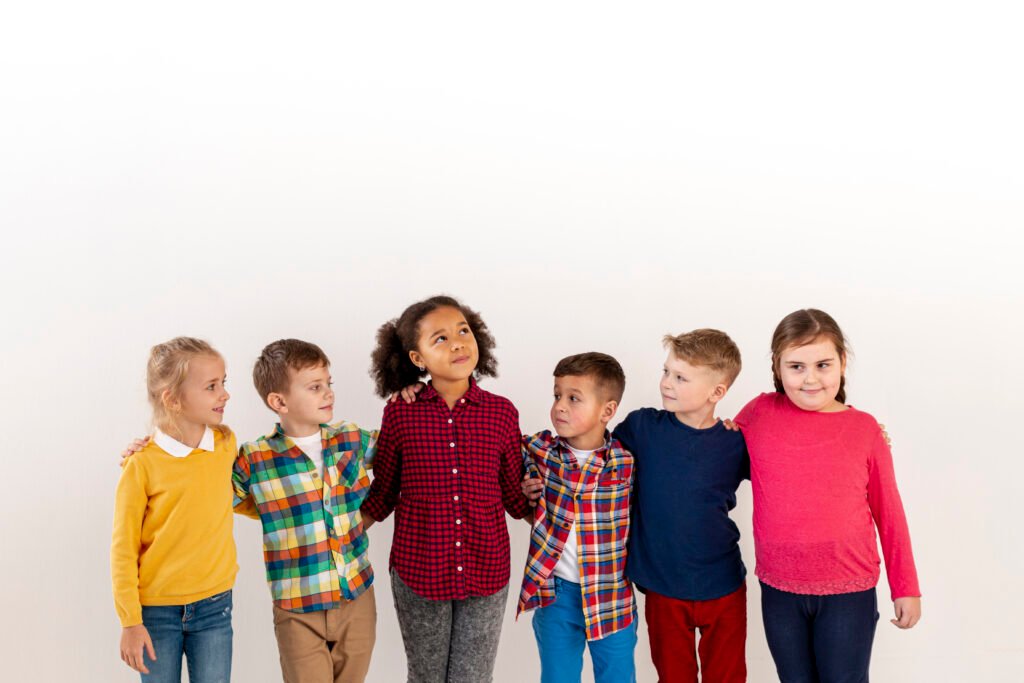I could imagine growing up as a kid and wanting to be loved and accepted by everyone just because I witnessed so many occasions where kids were bullied, mocked, and not accepted for the way they were. When we talk about ‘body image’ ” we’re referring to how people perceive their bodies and how they believe others see them. For children, It’s a personal view that various factors, including societal standards, media representations, and personal experiences can influence. On the other hand, kids with a negative body image struggle with feelings of inadequacy, leading to issues like anxiety, depression, and eating disorders.
As parents or guardians, your goal is to help your kids understand that their worth and what they can achieve right now and in years to come is not tied to their physical appearances. In this article, we will discuss why it’s essential to cultivate a positive body image in kids and the effective strategies to promote self-love and acceptance.
Why Is Positive Body Image Important for Kids
Children are somewhat controlled by their emotions which is why a positive body image lays the groundwork for their perception by others. Children with a healthy body image are more inclined to engage in healthy behaviors like balanced eating, and regular physical activity which makes the kids confident, resilient, and happy. Kids who feel good about their bodies are less likely to experience anxiety, depression, and other mental health issues.
You might notice your kid avoiding so many activities performed at her school, this might be due to other kids making jest about how her body is divinely created but because kids would always remain kids, her emotions can’t be managed by herself. Especially during puberty, communication and motivation to boost their self-image help children navigate puberty and other changes with a healthier outlook, making these transitions smoother and less stressful.
Signs of Negative Body Images
- Shy away from social activities that involve exposing the body
- Constantly checking any differences in the body size or shape
- Sudden changes in eating habits such as skipping meals or extreme dieting
- Expressing dissatisfaction with their body, calling themselves ugly or fat
- Experiencing mood swings, irritability, or emotional distress related to their appearance
How to Promote Positive Body Image In Kids
When children learn to care for their bodies through balanced nutrition and regular physical activity, they are more likely to develop a healthy and positive perception of themselves. For example, maintaining a healthy body image for your kids is a handy task as a parent this includes cutting down on junk and unhealthy beverages. At times, children mimic the behavior of adults, so be a positive role model when it comes to food. Eat various delicacies you enjoy, and avoid making negative comments about your or others’ food choices and body shapes.
Another way to help promote your kid’s body image is introducing her to the concept of affirmations—positive statements they can say about themselves. Examples include, “I am beautiful,” “I am unique,” “I can achieve anything I set my mind to,” or “I love my body.” Remind them to say these affirmations daily, especially in front of a mirror. This practice becomes a bonding moment with their inner self and a powerful boost to their self-esteem.

In the digital age world of today, children are constantly bombarded with images and messages from various media platforms. These messages often set unrealistic standards of beauty and can significantly impact a child’s body image. Imagine you and your child watching a commercial for a beauty product that features a model with flawless skin. You can pause the commercial and ask your child, “Do you think everyone’s skin looks like that?” or “Why do you think they chose this model?” This conversation can help your child understand that the ad is designed to sell a product and that the model’s appearance might not reflect reality.
Roles of Schools and Educators
- Implement anti-bullying policies and programs that specifically address body shaming and appearance-based teasing.
- Incorporate lessons on body image, self-esteem, and media literacy into the curriculum
- Encourage regular physical activity through physical education classes and extracurricular sports.
- Ensure that all students feel accepted and respected, regardless of their body size or appearance.
- Promote balanced nutrition through school meal programs and education.
Finally, let us create an environment where children feel valued and confident, regardless of appearance. By addressing the influences of media and societal standards, and emphasizing the importance of inner qualities and health, we help children build a strong foundation for lifelong self-esteem and well-being. Let’s work together to nurture a generation of kids who love and accept themselves just as they are!









